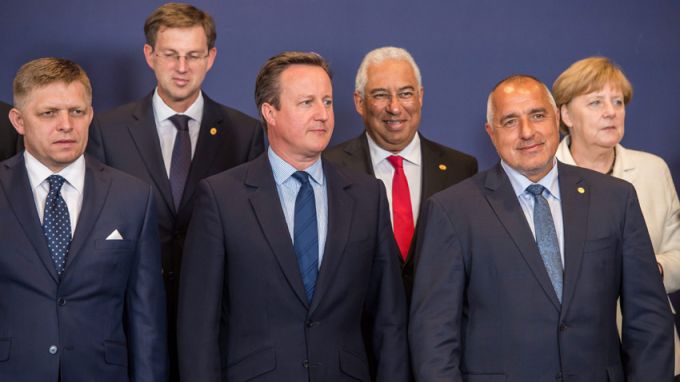
Bulgaria is one of the most pro-European countries and in that it is diametrically opposed to the UK which is on its way out of the European Union. There are no eternal friends, only eternal interests, a wise politician, Winston Churchill, once said and how right he was, judging by what is happening right now! Great Britain is backing out of European integration because it says it is not in its interest. Bulgaria is remaining because it is in its interest. At the two opposite ends of Europe, things look very different.
Bulgaria has benefited a great deal since it joined the EU in 2007 but there have also been many concerns, recriminations, accusations and threats. Yet the overall balance is positive. Great Britain hasn’t had much to do with that – it has always been a member with a special status, keeping its distance from the problems of the continent and Bulgaria was not even on the list of countries important to the UK in any way – strategically, politically or economically. People in Bulgaria have never been very interested in Great Britain’s problems either – except for football and the royal family.
Looked at things from this angle, Brexit doesn’t mean much in official Bulgarian-British relations with some small, but important exceptions. All the more so that the two countries will continue as members of NATO which makes them allies and in our day that may prove to be even more important that trade or investments.
As hazy as all things that go with the UK’s leaving the EU may be, as rapidly as the possible scenarios of developments in the coming months may multiply, there still remains a very real risk of the funding from the Brussels budget dwindling tangibly once London stops paying into the EU budget every year. That money is not to be underestimated – some experts say that 500 million euro of the subsidies that pour into Bulgaria from European funds, come directly from the British treasury. So the European funding for Bulgaria may well go down by just that sum, and Bulgaria’s own contribution will go up because the British hole in the community budget has to be filled in.
It is vital to know what will happen to the Bulgarians living in Great Britain – from a financial but also from a purely human perspective. There are more than 200,000 Bulgarians studying or working there, regularly sending back money to support friends and relatives here, in Bulgaria. Some have British passports, others have temporary permits as EU citizens, but there are those who live and work there illegally. They will all be affected, one way or another by the looming changes in British migration legislation. And the expat money flowing into Bulgaria will dwindle.
As to trade between the two countries, foreign direct investments, free movement of capital and commodities, things are hardly likely to change dramatically. First, because trade and economic relations between Great Britain and Bulgaria have never been particularly active and second, because whatever may come, complete economic isolation from the continent is simply not realistic. In other words, the effects for Bulgaria will not be all that dramatic and the tourists from Britain will not stop coming to Bulgaria’s sea and mountain resorts – for them holidaying here will continue to be good value for money.
The biggest and most palpable changes will be in the role of the London city, one of the world’s three foremost financial centres. Many foreign and local banks have already stated their intention of taking their business to EU countries – to Paris or Frankfurt for example. Yet these are problems not many people in Bulgaria care about – this country has neither the capacity nor the expertise to be active on the world currency and financial markets and most Bulgarian banks are owned by financial institutions from the EU anyway.
The worst-case post-Brexit scenario that has been tossed around is the gradual breakup of the EU or its reformation to a degree that would mean Bulgaria dropping out of it. Something that ought not to be ruled out, though nobody knows how things will ultimately turn out making any predictions of the consequences for Bulgaria of this catastrophic scenario absolutely nonsensical. One thing is certain – if that is the way things play out it would spell disaster for Bulgaria.
English version: Milena Daynova
So far there is no decision of the Central Election Commission (CEC) on the filed request for independent participation of the DPS faction of honorary leader Ahmed Dogan in the snap parliamentary elections on October 27. It was submitted yesterday..
The association ''Descendants of Refugees and Migrants from the Territory of the Republic of North Macedonia and Friends'' has sent an open letter to the Albanian community in North Macedonia and to the diplomatic missions accredited in North Macedonia..
If the Movement for Rights and Freedoms (DPS) were to contest the upcoming snap parliamentary elections on 27 October as a unified party, it would receive 15.4% of the electorate's support. GERB is again the leading political player, with 21.9 per cent...

+359 2 9336 661
